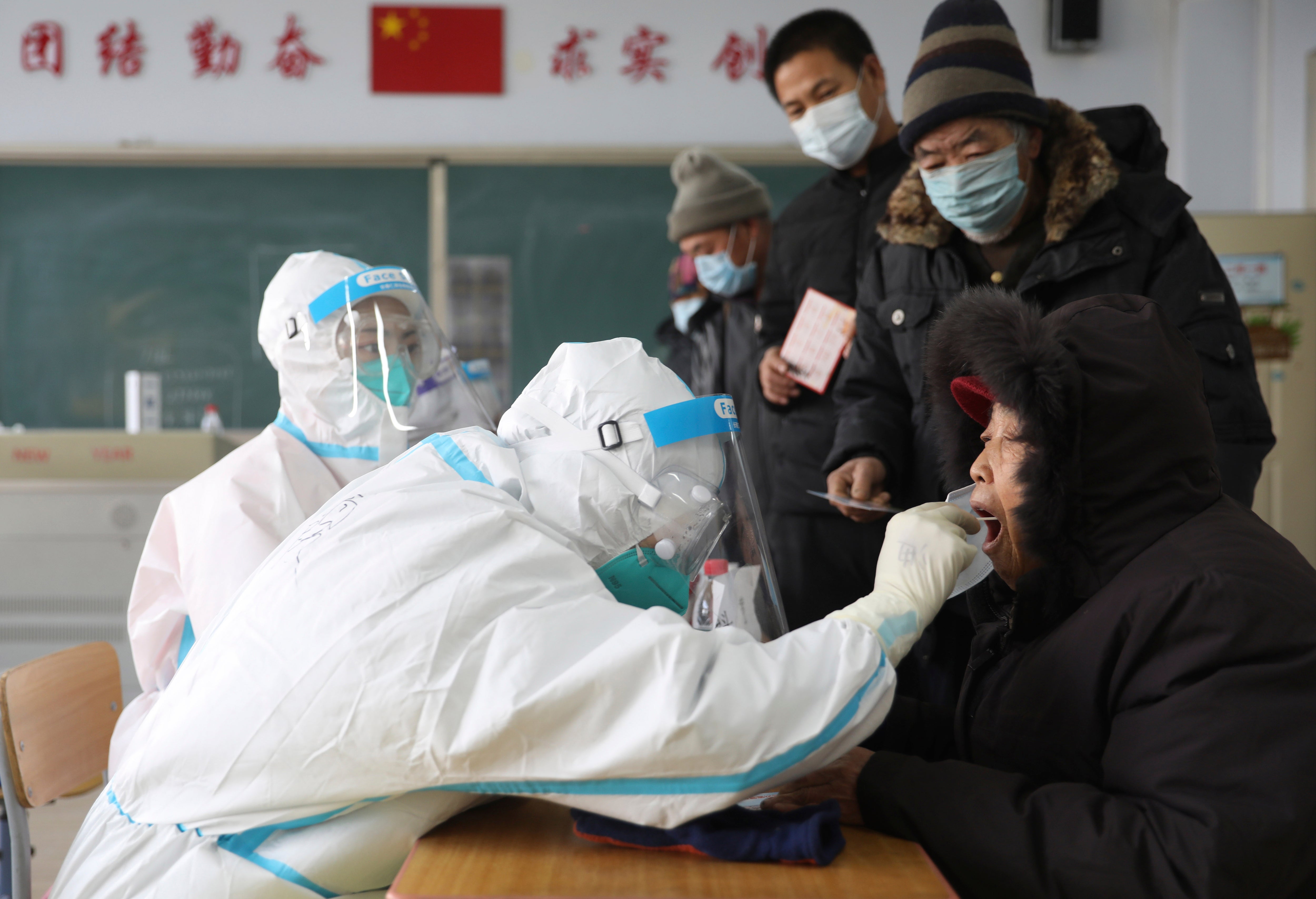Asia Today: Chinese city tests millions amid fresh outbreak
Millions of people are lining up in subzero temperatures to receive a second round of coronavirus tests in a city south of Beijing that is at the heart of China’s most serious latest outbreak of COVID-19

Your support helps us to tell the story
From reproductive rights to climate change to Big Tech, The Independent is on the ground when the story is developing. Whether it's investigating the financials of Elon Musk's pro-Trump PAC or producing our latest documentary, 'The A Word', which shines a light on the American women fighting for reproductive rights, we know how important it is to parse out the facts from the messaging.
At such a critical moment in US history, we need reporters on the ground. Your donation allows us to keep sending journalists to speak to both sides of the story.
The Independent is trusted by Americans across the entire political spectrum. And unlike many other quality news outlets, we choose not to lock Americans out of our reporting and analysis with paywalls. We believe quality journalism should be available to everyone, paid for by those who can afford it.
Your support makes all the difference.Millions of people were lining up Wednesday in subzero temperatures to receive a second round of coronavirus tests in a city south of Beijing that is at the heart of China’s most serious latest outbreak of COVID-19.
The National Health Commission announced Wednesday that another 90 confirmed cases had been reported in Hebei province, whose capital Shijiazhuang has accounted for the vast majority of recent cases. Another 16 cases were reported in the northeastern province of Heilongjiang and one in the northern province of Shanxi.
China, where the coronavirus was first detected in late 2019, had largely contained domestic spread of the virus and the new outbreaks come even as authorities push to vaccinate 50 million people by the middle February.
The Hebei outbreak is of particular concern because of the province’s close proximity to Beijing. Travel to and from three cities, Shijiazhuang, Xingtai and Langfang, has been suspended and residents of some communities have been told to stay home for the next week.
All of Shijiazhuang’s roughly 10 million people have been ordered to undergo a second round of testing as authorities seek to isolate the sources of the outbreak. Some of the infections have been tentatively linked to wedding gatherings.
Similar measures have been ordered around the country, particularly in Wuhan where 11 million people were placed under lockdown for 76 days last winter during the early days of the pandemic.
The increased numbers come as World Health Organization experts prepare to fly on Thursday to Wuhan at the start of their investigation into the origins of the pandemic.
China has rejected calls for an independent investigation while strictly controlling all research into the origins of the coronavirus and promoting fringe theories that the virus may have actually been brought to China from outside.
In other developments in the Asia-Pacific region:
— Indonesian President Joko Widodo received the first shot of a Chinese-made COVID-19 vaccine on Wednesday after Indonesia approved it for emergency use. The world’s fourth most populated country plans to vaccinate millions of health care workers and other other high-risk groups in the coming months. Top military, police and medical officials also were vaccinated, as well as the secretary of the Indonesian Ulema Council, the clerical body that last week had ruled the vaccine was halal and could be taken by Muslims. Health officials are still working to secure access to enough doses to protect around 67% of the population. Authorities have conceded the effort might be marred by infrastructure issues like keeping the vaccines cold enough to maintain their effectiveness.